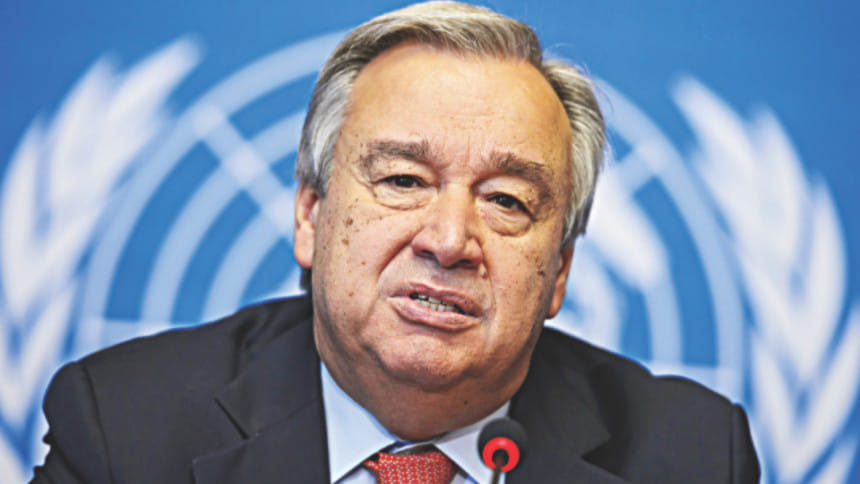Healthy ozone layer, climate essential to meeting all SDGs: UN chief

UN Secretary-General Antonio Guterres has said a healthy ozone layer and climate are essential to meeting all of the Sustainable Development Goals (SDGs).
He said the leadership of global leading companies is essential to realize the vision into reality and called for concrete and enhanced actions from industry.
"We need all countries to develop National Cooling Action Plans to deliver efficient and sustainable cooling and bring essential life preserving services like vaccines and safe food to all people," the UN chief said in a message marking the day that falls on September 16.
He said the Montreal Protocol continues to protect people and planet alike.
"Let this International Day for the Preservation of the Ozone Layer be an inspiration towards greater ambition on cooling, at the Climate Action Summit and beyond," Guterres said.
Next week, the world will gather at United Nations Headquarters in New York for the Climate Action Summit, which aims to generate a massive step-up in global ambition in addressing the climate emergency.
"Another year of record heatwaves, superstorms and climate disruption tells us we have no choice but to act now before it is too late," said Guterres.
As they prepare for this crucial meeting, he said they should remember that the Montreal Protocol is both an inspirational example of how humanity is capable of cooperating to address a global challenge and a key instrument for tackling today's climate crisis.
"Under this international treaty, nations have worked for 32 years to slash the use of ozone-depleting chemicals, used largely by the cooling industry. As a result, the ozone layer that shields us from the sun's harmful ultraviolet radiation is healing," the UN chief mentioned.
He said the Montreal Protocol can deliver an equally significant result on climate change through its Kigali Amendment, which targets hydrofluorocarbons (HFCs), powerful climate-heating gases still used in cooling systems.
"Phasing these out could reduce global warming by up to 0.4°C this century. As industry redesigns appliances to replace HFCs, it is also essential to improve their energy efficiency to further reduce their impact on the climate," Guterres said.
He said the Montreal Protocol has been such a success because of unanimous global support. "I commend the 81 nations that have ratified the Kigali Amendment and encourage all others to follow suit."
The UN chief said as they rightly focus their energies on tackling climate change, they must be careful not to neglect the ozone layer and stay alert to the threat posed by the illegal use of ozone-depleting gases.
"The recent detection of emissions of one such gas, CFC-11, reminds us that we need continued monitoring and reporting systems, and improved regulations and enforcement," he said.
Implementation of the Kigali Amendment will be front and center for climate action, said the UN chief.

 For all latest news, follow The Daily Star's Google News channel.
For all latest news, follow The Daily Star's Google News channel. 








Comments